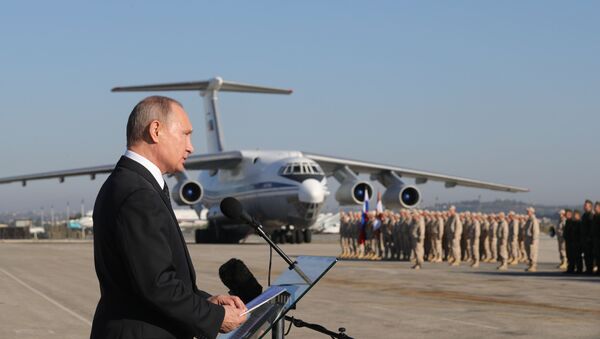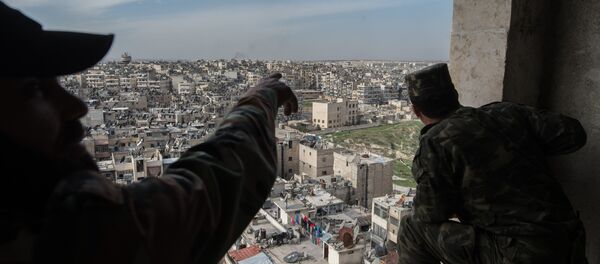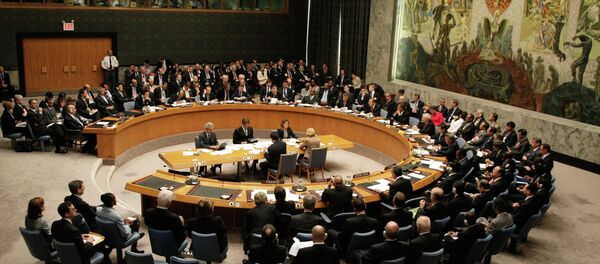New Delhi (Sputnik) — The upcoming book by Stanly Johny is slated to throw some rare light on the rapid and violent rise of the Daesh* in West Asia. The journey of Daesh* from Syria to evidence of large-scale recruitment from the southern Indian state of Kerala will be chronicled in his upcoming book "The ISIS Caliphate: from Syria to the Doorsteps of India."
Sputnik talked to Dr. Stanly Johny, International Affairs Editor of The Hindu newspaper to find out more about the book and to know more about the course of his research and understanding of the situation.
READ MORE: 'We Won’t Be Taking Orders From US' — Syrian Democratic Forces Commander
Sputnik: Your book is making news even before its release. What should a reader expect from your writing which is different from other books on Daesh or about the general security scenario in the West Asian region?
Stanly Johny: I think there are two things. I am trying to offer a non-Western perspective, which is not practically embedded with the Western security or the liberal internal paradigms. The book also offers Daesh’s spread from its core, which is Iraq and Syria, to other regions, mainly South Asia. In a sense, I am exploring both the organizational and ideological networks of Daesh because that’s how it has expanded. And those who read me, I think, are familiar with my methodology. I follow a geopolitical analytical pattern. I have done the same in writing this book. Bloomsbury is the publisher. And the release is scheduled sometime in April.
READ MORE: Assad Vows to Confront 'Western Scenarios' Targeting Unity, Sovereignty of Syria
Sputnik: Tell us more about yourself and what made you choose this topic. While it’s obvious that this was a difficult subject to deal with, especially with the limitations to reach out and the opaque nature of this region of the war theatre you are talking about.
Stanly Johny: I have been a student of international relations for more than 16 years now. The Middle East is my focus area. My Ph.D., from Delhi’s Jawaharlal Nehru University, is on Hezbollah and Israel. So like anyone who’s interested in the region, the rise of Daesh in a short span of time, intrigued me as well. An organization that was unheard of in 2013 was controlling territories as big as Great Britain in June 2014! They were controlling Mosul, Iraq’s second-largest city. It’s like, for an Indian, Mumbai was overrun and controlled by a group of armed men. So initially I was trying to understand who did this happen? Where were the roots of Daesh going? I did some basic research and started writing on the topic in The Hindu, where I work. I seriously started thinking about a book project when news reports started coming about Indians traveling to Daesh-controlled areas.
READ MORE: Russian Security Service Busts Daesh-Linked Criminal Group in Moscow
Sputnik: Tell us some interesting aspects of the course of your work while you were researching and writing this book. Were the outcomes unexpected? Any personal challenges you faced?
Stanly Johny: The main challenge was to strictly focus on the available facts and ignore conspiracy theories. Because there are lots of conspiracy theories on Daesh, starting from Israel having created it to that Bashar al-Assad was supporting it. This is a matter of fact study. The interesting aspect is the similarities I found in the rise of Daesh and the rise of some other Wahhabi states in the past. There’s a chapter that’s dealing with the proto-state Abu Bakr al-Baghdadi built across Iraq and Syria and its historical similarities.
Sputnik: You have been a writer for one of the foremost publications of India. As an expert on the issue, what would be the rough timeline that you suggest for the inception, growth, pinnacle and apparent downfall of Daesh and organizations of its kind?
Sputnik: Your book title says “from Syria to the doorsteps of India.” Can you explain it? Especially the news of Daesh recruiting from Kerala and what makes Kerala such a fertile ground for the hardline group?
Stanly Johny: Daesh has lost territories in Iraq and Syria. But it still has a sanctuary in Afghanistan. Daesh has also claimed attacks in Pakistan and Bangladesh. In Pakistan, a splinter group of the Pakistani Taliban had declared loyalty to Baghdadi. And the slain leader of the Daesh faction in Afghanistan, the Khorasan, had once said that they would fight in Kashmir against the Indians. So I am trying to understand this Daesh spread into South Asia, also how it managed to attract Indian youth, those from Kerala, one of the most socially advanced states in the country, to its fold.
READ MORE: EXCLUSIVE: The Violent Reality of 'Western Propaganda Construct' White Helmets
Sputnik: What do you perceive the role of Russia is in the recent history in Syria and how has the Russian stance altered the discourse and where is it heading?
Stanly Johny: In September 2015, the Syrian government was on the brink of collapse. It had lost huge swathes of territories to several rebel/jihadist groups such as Daesh, al-Nusra (al-Qaeda), Jaish al-Islam and the Free Syrian Army. The battle in eastern Aleppo was not reaching anywhere. Eastern Syrians cities were controlled by Daesh. Idlib was under the al-Qaeda faction which was breathing down on the regime-held Mediterranean coastal region.
But the Russian operation changed the balance of power on the ground. It allowed the government to stabilize itself and then go after the rebels. If you look at today’s Syrian map, most population centers are with the government. Nobody is talking about regime change now. That’s the most important contribution of the Russian intervention.
The challenge for the Russians is now to find a political settlement to the crisis. Because Syria is now a broken and wounded republic, it can’t be left like that even if the regime retakes all the lost territories.
Sputnik: Where did America falter? What is the way out for America to save its face out of this mess?
Sputnik: What will be left out of these countries of Syria, Iraq, and Afghanistan in the near future? What role do you see countries like Russia, China and India playing in the scenario after the dust settles down?
Stanly Johny: As I said earlier, Syria is a broken country. It has to be rebuilt. There has to be a political leadership in Syria who people trust. It will take time for the wounds of the war to heal. Russia, being the most important foreign player in Syria right now, could play a huge role in it. The Russians are pushing for a political solution. You could see that in Sochi. You could see that in the statements of Lavrov. They should use their influence to find one, while the Chinese with all their wealth could play a crucial role in the country’s reconstruction. I don’t imagine any direct role India can play in Syria, but certainly in Afghanistan, where India is already involved, in reconstruction.
READ MORE: Pakistan Serves as Gate for Daesh's Entry Into Afghanistan — Indian Analyst
Sputnik: The composition of this Daesh group. What does your research say, which nationalities exist in its fold, what are the languages they use and please tell us about their general behavior and habits which is not known to the outer world?
Stanly Johny: All nationalities are involved. Syrians, Iraqis, Tunisians, Libyans, people from the Gulf, Americans, British, French, Algerians, Moroccans and Belgians, etc. The question is how all these people were attracted to Daesh. In that sense, Daesh was a civilizational counter-revolutionary force. It stands opposed to all the modern values of human civilization. And for them, violence was both a method and the medium. They used it as a tactic and drew legitimacy for it from history and selective interpretation of scriptures. So Daesh tried to recreate an imagined war between Islam and the crusaders through a real war between armed militants and governments. Its success is that it could sell this imagined war to disaffected Muslim youth around the world and the geopolitical situation in Syria and Iraq allowed these youth to travel to Daesh-controlled areas and join the fight. That’s how the Daesh Caliphate was born.
*Daesh (also known as ISIS/ISIL/IS) is a terrorist group banned in Russia
The views and opinions expressed by Stanly Johny in this article are those of the speaker and do not necessarily reflect the position of Sputnik.



